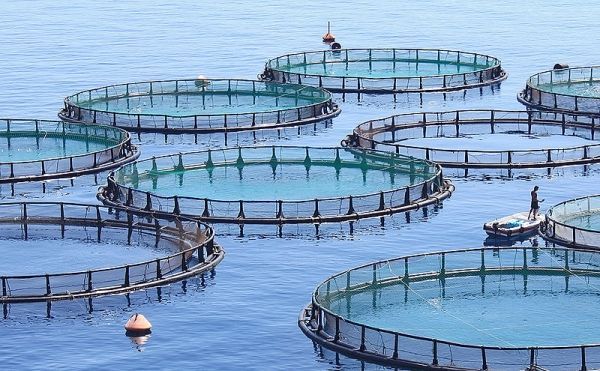Many of the world’s future farmers will likely be farming oceans, as aquaculture – the cultivation of fish and other aquatic species – continues its expansion as the fastest growing food sector. New research shows that in order for this next generation of farmers to thrive, there is an urgent need to prepare them for climate change.
Researchers from the National Center for Ecological Analysis and Synthesis (NCEAS) at UC Santa Barbara have published the first comprehensive analysis of how climate change could affect marine aquaculture production, specifically of finfish and bivalves (e.g., oysters), around the world. Published in the journal Nature Ecology and Evolution, their study, “Global change in marine aquaculture production potential under climate change,” reveals that climate change is not only a threat to global production in the future, but also is affecting producers today.
“Climate change is impacting marine aquatic farmers now, and it’s likely to get worse for most of the world if we don’t take mitigating measures,” said lead author Halley Froehlich, a postdoctoral researcher at NCEAS.
Their analysis reveals an important and previously missing piece of the puzzle in understanding how climate change will affect the future of global food security. It provides an essential first step toward helping ocean farmers and coastal countries prepare for the coming changes and to ensure sustainable seafood production worldwide.
Read more at University of California - Santa Barbara
Photo Credit: Asc1733 via Wikimedia Commons


